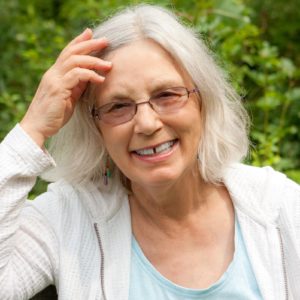We at Hospicare can’t begin to thank you enough for your support. We are empowered by you to make a difference in all our home towns across Tompkins and Cortland counties and we are so grateful.
During the holiday season and throughout 2017, you showed compassion for people with life-limiting illnesses and their loved ones, as they faced the end of their lives. Our goal is always to alleviate suffering and manage symptoms. There have been great advances in pain and symptom control in the past few years. Patients feel better with good pain and symptom management. Hospicare does nothing to speed up or slow down the dying process. Our role is to lend support and allow the disease process to unfold as comfortably as possible.
Hospicare is an experience of care and support different from any other type of care. The hospice residence — first in New York State – was created in the 1980’s to offer a homelike environment and a primary source of ongoing care to terminally ill patients who would not otherwise have that, and regardless of their circumstances or ability to pay.
Your kindness and gifts have helped to cover some of the costs of these patients’ care that insurance does not cover such as some medications and equipment; and the “room and board” aspect of their care.
Our integrative medicine and palliative arts use a holistic approach that combines conventional medicine and complementary practices that bring relief and serenity for our patients wherever they live.
At Hospicare our team of expert clinicians and specially-trained palliative arts volunteers blends the best of all treatment and modalities in a soothing, caring environment. They focus on balancing overall wellness – body, mind and spirit – and improving quality of life. Volunteers also may serve and comfort patients in their homes, long-term care facilities or the residence and can include mind-body practices, breath work and guided imagery, licensed massage therapy and Reiki, live or recorded music, aromatherapy and pet visits.
Our successes are about helping people live fully. We encourage patients and their families to do what they enjoy as they are able and allow families to rest so that they can give 100% love and affection to their loved one. The Hospicare team assists patients and families in achieving their goals and dreams as much as possible.
We provide grief counseling to the whole family for a full year after death of a loved one on Hospicare services and beyond, as well, when requested. We offer bereavement services to the communities we serve as well, regardless of where their loved one died—bereavement counseling may not be covered by insurances.
Caring for the dying is a partnership with the community. Hospicare trains and supports local volunteers who offer comfort and practical support to patients and families living in their homes or in the Hospicare residence— such as respite for caregivers, grocery shopping, meal preparation, childcare, pet care, companionship, reading and so much more. None of this compassionate care is covered by insurance.
Your gifts and support ensure that we can offer the best possible care for people who are dying. Across Tompkins and Cortland counties, you helped us to make a meaningful difference in the quality of life of people at the end of their life—alleviating pain and fear.
There is still so much work to be done to raise awareness of the benefits of early referral to palliative and hospice care. Lack of awareness of hospice means too many people still die alone or in pain. Too many people are being referred to Hospicare too late or not at all, not affording them the time and opportunity to live out the remainder of their lives supported and comforted in so many ways. And too many families are left without bereavement support. However, because of your support at the end of the year and throughout 2017, we are well-positioned to provide best possible care and assistance to hundreds of families in the area. We know that without your generosity, and determination to help Hospicare, that we would not be able to offer the special, personal and compassionate care we provide to the people who need our help.
As this year progresses, we will make sure to keep you abreast on how your support is helping. We will also keep you informed about news and events at Hospicare.
Thank you again for your commitment to compassionate end of life care in this coming year.
Wishing you and yours a Happy New Year,
From all of us at Hospicare and Palliative Care Services

 Bio: Elaine Mansfield’s book Bio:
Bio: Elaine Mansfield’s book Bio: